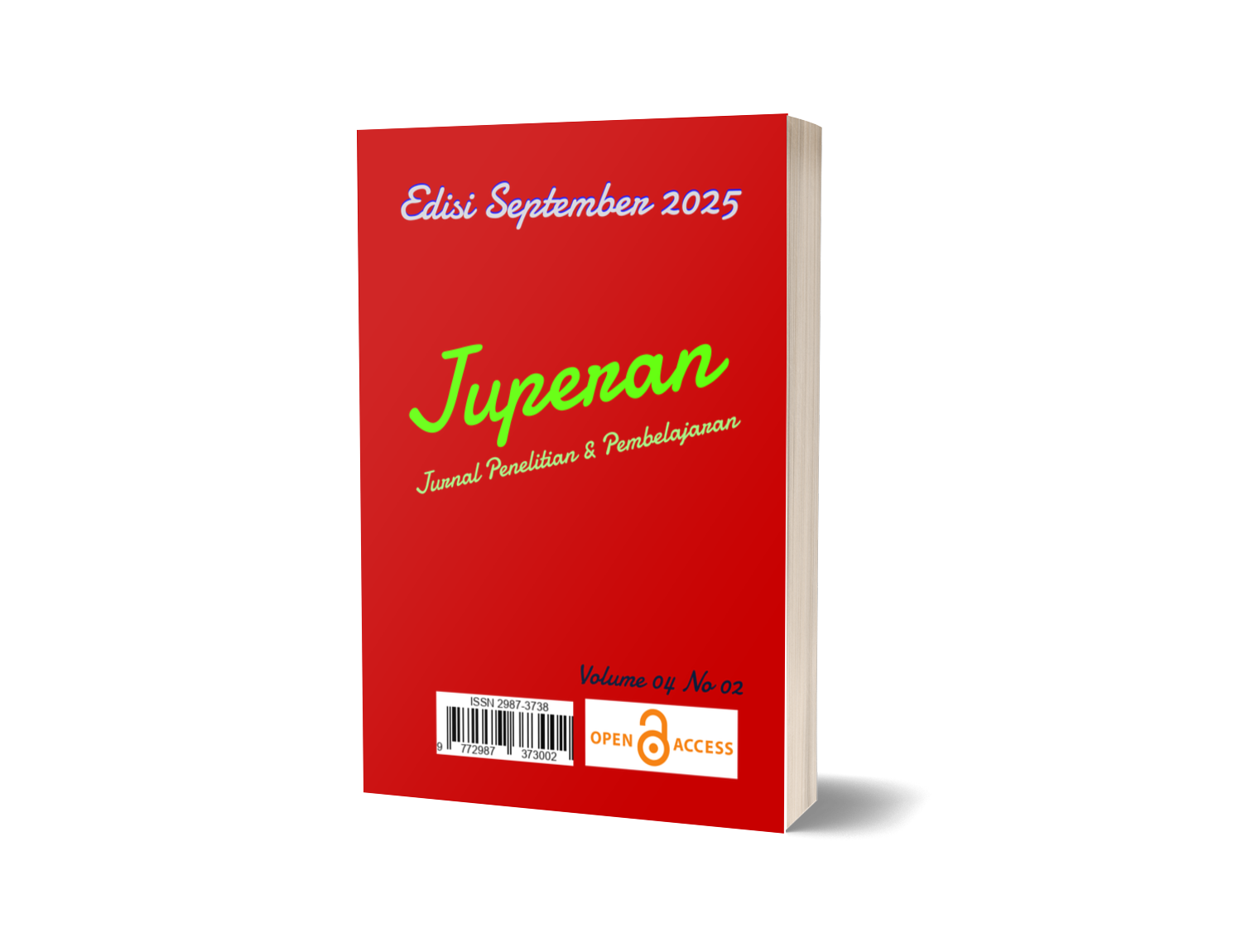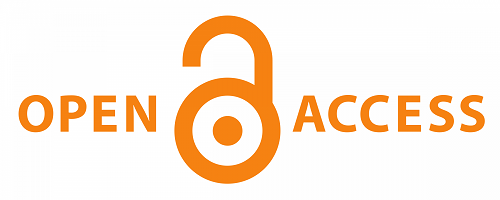Discovery Learning in Efl Writing: A Qualitative Study of Eighth-Grade Students’ Experiences
Keywords:
Discovery Learning, EFL Writing, Student Experiences, Qualitative StudyAbstract
This qualitative study investigates the experiences of eighth-grade students in learning English writing through the Discovery Learning approach. The research explores how this method influences students’ engagement, challenges, and skill development. Data were collected through interviews, classroom observations, and students’ written works, then analyzed thematically to capture emerging patterns. The findings indicate that Discovery Learning fosters students’ autonomy, motivation, and problem-solving skills, while also encouraging collaboration and active participation. However, challenges in grammar and vocabulary remain, suggesting the need for complementary explicit instruction. Overall, the study provides valuable insights into the effectiveness of Discovery Learning in EFL writing instruction and offers practical implications for English teachers and future researchers.
Downloads
References
Alfian, A. (2020). The effectiveness of discovery learning in teaching writing for EFL students. Journal of English Language Teaching and Linguistics, 5(2), 215–228. https://doi.org/10.21462/jeltl.v5i2.413
Apriani, E., & Hidayat, D. N. (2019). Discovery learning strategy in teaching writing at the junior high school level. International Journal of English Language and Literature Studies, 8(3), 85–95. https://doi.org/10.18488/journal.23.2019.83.85.95
Azizah, N., & Rachmawati, Y. (2021). Students’ experiences in learning English writing through discovery learning. Journal of English Education and Teaching, 5(1), 45–56. https://doi.org/10.33369/jeet.5.1.45-56
Bandura, A. (1997). Self-efficacy: The exercise of control. W. H. Freeman and Company.
Braun, V., & Clarke, V. (2006). Using thematic analysis in psychology. Qualitative Research in Psychology, 3(2), 77–101. https://doi.org/10.1191/1478088706qp063oa
Braun, V., & Clarke, V. (2019). Reflecting on reflexive thematic analysis. Qualitative Research in Sport, Exercise and Health, 11(4), 589–597. https://doi.org/10.1080/2159676X.2019.1628806
Bruner, J. S. (1966). Toward a theory of instruction. Harvard University Press.
Bruner, J. S. (2017). The process of education. Harvard University Press. (Reissue of 1960 original)
Creswell, J. W., & Poth, C. N. (2018). Qualitative inquiry and research design: Choosing among five approaches (4th ed.). SAGE Publications.
Darmi, R., & Albion, M. (2019). The effects of problem-based learning on students’ intrinsic motivation in EFL classrooms. Journal of English Teaching and Learning Issues, 2(2), 101-115.
Fareed, M., Ashraf, M., & Bilal, M. (2016). EFL students' writing skills and problems: A case of Pakistan. Journal of Education and Educational Development, 3(2), 181-193.
Hadi, A. (2020). Improving students’ critical thinking skills through discovery learning model in higher education. Journal of Educational Research and Evaluation, 9(1), 1-8. https://doi.org/10.21831/jere.v9i1.29824
Hapsari, A., & Nurhayati, D. A. W. (2020). Discovery learning to improve students’ writing skills in narrative text. JET (Journal of English Teaching), 6(1), 10–20. https://doi.org/10.33541/jet.v6i1.1445
Hartati, Y., & Marlina, L. (2021). The effectiveness of Discovery Learning on students' writing motivation and autonomy in EFL classrooms. Journal of English Language Teaching, 10(2), 198-207. https://doi.org/10.24036/jelt.v10i2.112182
Hidayati, N. (2018). The effect of discovery learning method on students’ writing narrative text ability. English Language Teaching Journal, 7(1), 25-34.
Hosnan, M. (2019). Pendekatan saintifik dan kontekstual dalam pembelajaran abad 21. Ghalia Indonesia.
Hyland, K. (2019). Teaching and researching writing (3rd ed.). Routledge.
Ismail, S. M., & Darwis, A. A. (2022). Discovery learning in English as a foreign language classrooms: Benefits and challenges. International Journal of Education, 14(1), 23–35. https://doi.org/10.17509/ije.v14i1.45632
Khairunnisa, S., & Cahyono, B. Y. (2020). The effect of collaborative writing on students’ writing fluency and accuracy. Journal of English Language Teaching, 9(2), 205-214.
Marzuki, M. (2022). The effect of discovery learning method on students’ understanding of English concepts. International Journal of Research and Innovation in Social Science, 6(1), 12-18.
Nguyen, T. T. (2021). Teaching academic writing in the 21st century: Challenges and opportunities. VNU Journal of Foreign Studies, 37(3), 101-112.
Pratiwi, N. L., & Suryana, Y. (2021). The effect of discovery learning method on students' writing ability. Journal of English Language Teaching, 10(1), 89-98.
Putri, S. A., & Ratmanida, R. (2020). The implementation of project-based learning to improve students' writing skill. Journal of English Language Teaching, 9(1), 74-84. https://doi.org/10.24036/jelt.v9i1.107066
Rachmawati, Y. (2021). Investigating EFL learners’ linguistic limitations in academic writing. Journal of English Language Teaching, 10(3), 301-310.
Rachmawati, Y., & Cahyono, B. Y. (2020). An analysis of Indonesian EFL students’ difficulties in writing argumentative essays. Journal of English Language Teaching, 9(3), 362-371. https://doi.org/10.24036/jelt.v9i3.109154
Rohmani, R., Apriza, B., & Mahendra, Y. (2021). Pengembangan gim kuis edukasi suplemen buku ajar pengantar dasar IPA berbasis website. JINoP (Jurnal Inovasi Pembelajaran), 7(2), 194–208. https://doi.org/10.22219/jinop.v7i2.18576
Santosa, R., & Utami, B. (2020). The effect of collaborative writing on students’ narrative writing ability. English Education Journal, 11(1), 12-23.
Sari, Y. A., & Widodo, H. P. (2021). Engaging students in discovery learning for English writing instruction. Indonesian Journal of Applied Linguistics, 11(1), 34–45. https://doi.org/10.17509/ijal.v11i1.34654
Sari, P., & Kurniawan, D. (2022). Discovery learning method in improving students' problem-solving skills in essay writing. Journal of English Language Education, 7(1), 45-56.
Sugiyono. (2019). Metode penelitian kualitatif, kuantitatif, dan R&D. Alfabeta.
Vygotsky, L. S. (1978). Mind in society: The development of higher psychological processes. Harvard University Press.
Wahyuni, S., & Afrianto, A. (2022). Exploring students’ perceptions of discovery learning in EFL writing class. Journal of ELT Research, 7(2), 150–162. https://doi.org/10.22236/JER
Wulandari, R., & Rahayu, R. (2022). Student-centered approaches in EFL writing classroom: A literature review. Journal of English Language Teaching and Learning, 3(1), 10-18.










